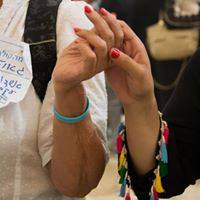 On 24 September, 30,000 women set out on a peace march from Sderot (Negev) to Jerusalem. The initiative, promoted by “Women Wage Peace” (WWP) included meetings, moments of dialogue and prayer. It ended on 11 October in Jerusalem. “Grassroots initiatives such as this one are important because they express a part of the Israeli people who do not want war, occupation, and to continue in this situation,” commented the Maronite Patriarchate of Jerusalem. The voice of these women fills the void left by an absence of political parties truly committed to peace, at a time of “political stagnation” due to the disinterest of the international community in the Palestinian issue. WWP was born three years ago in response to the conflict in Gaza, and currently numbers 24,000 members, including “thousands of women who belong to right, centre and left wing factions, who are Arab and Jewish, religious and lay, all united to seek a political peace agreement to end the Israeli-Palestinian conflict.” Prayer of the Mothers
On 24 September, 30,000 women set out on a peace march from Sderot (Negev) to Jerusalem. The initiative, promoted by “Women Wage Peace” (WWP) included meetings, moments of dialogue and prayer. It ended on 11 October in Jerusalem. “Grassroots initiatives such as this one are important because they express a part of the Israeli people who do not want war, occupation, and to continue in this situation,” commented the Maronite Patriarchate of Jerusalem. The voice of these women fills the void left by an absence of political parties truly committed to peace, at a time of “political stagnation” due to the disinterest of the international community in the Palestinian issue. WWP was born three years ago in response to the conflict in Gaza, and currently numbers 24,000 members, including “thousands of women who belong to right, centre and left wing factions, who are Arab and Jewish, religious and lay, all united to seek a political peace agreement to end the Israeli-Palestinian conflict.” Prayer of the Mothers
Begin again with trust
Begin again with trust




0 Comments